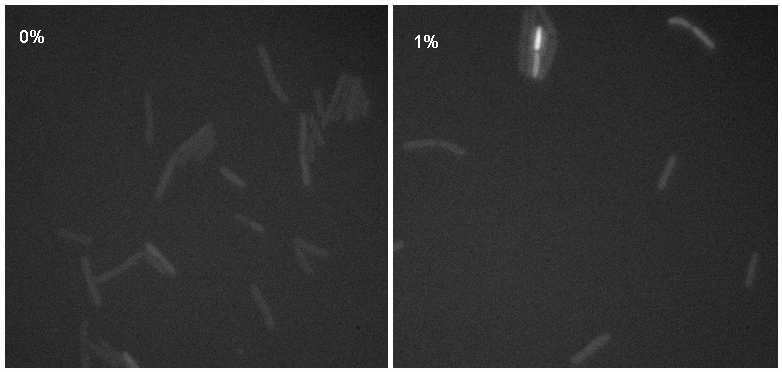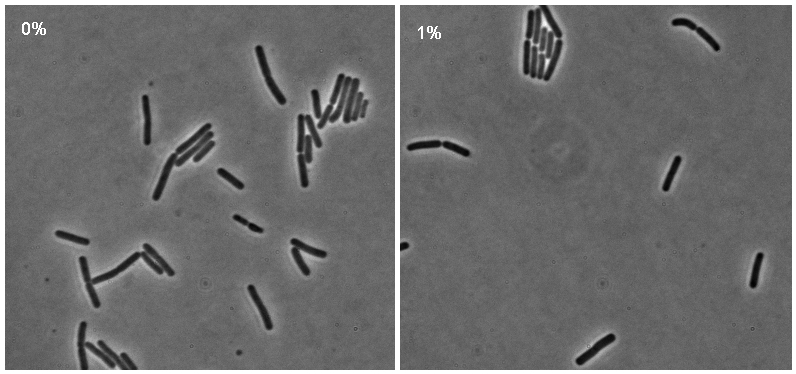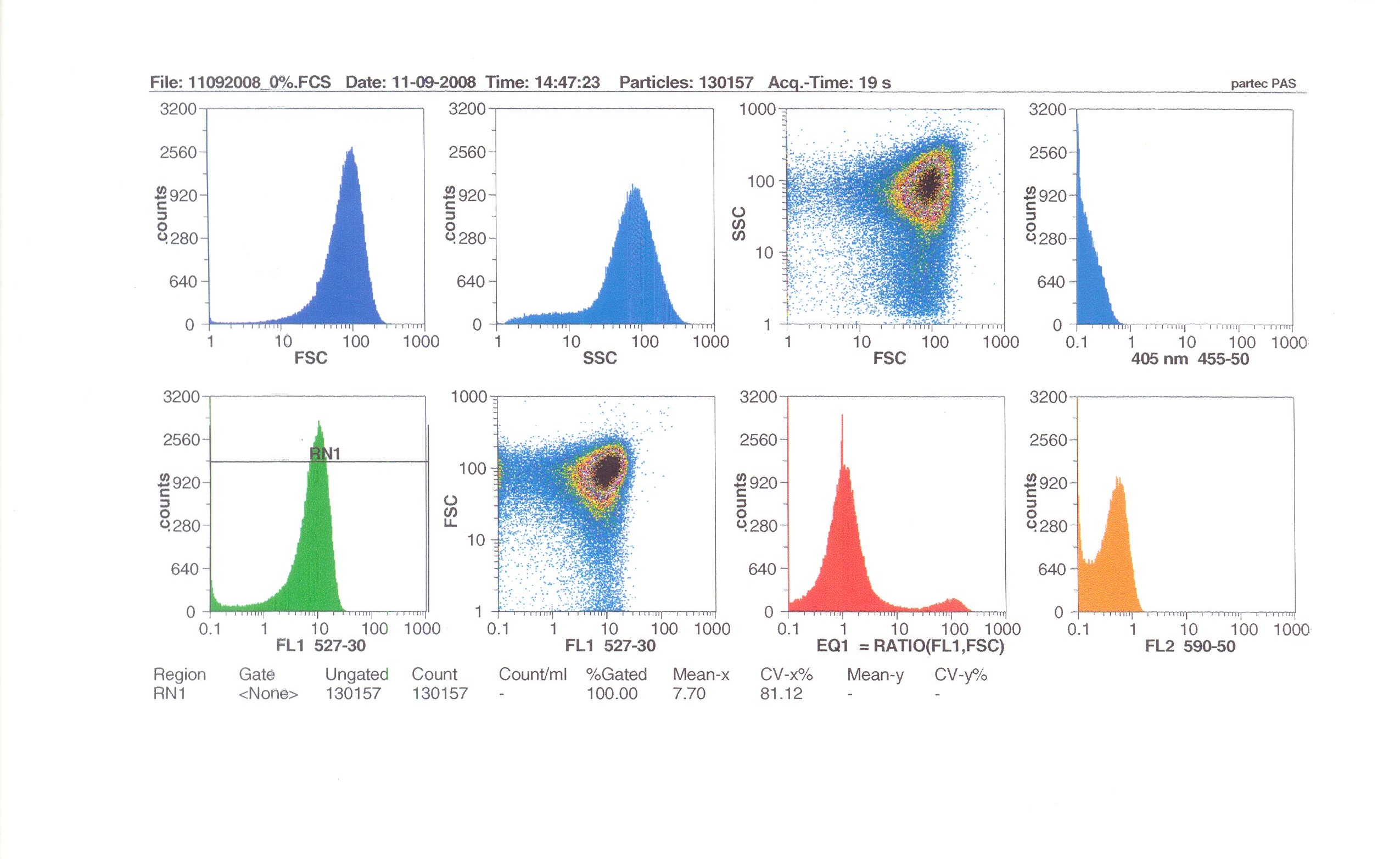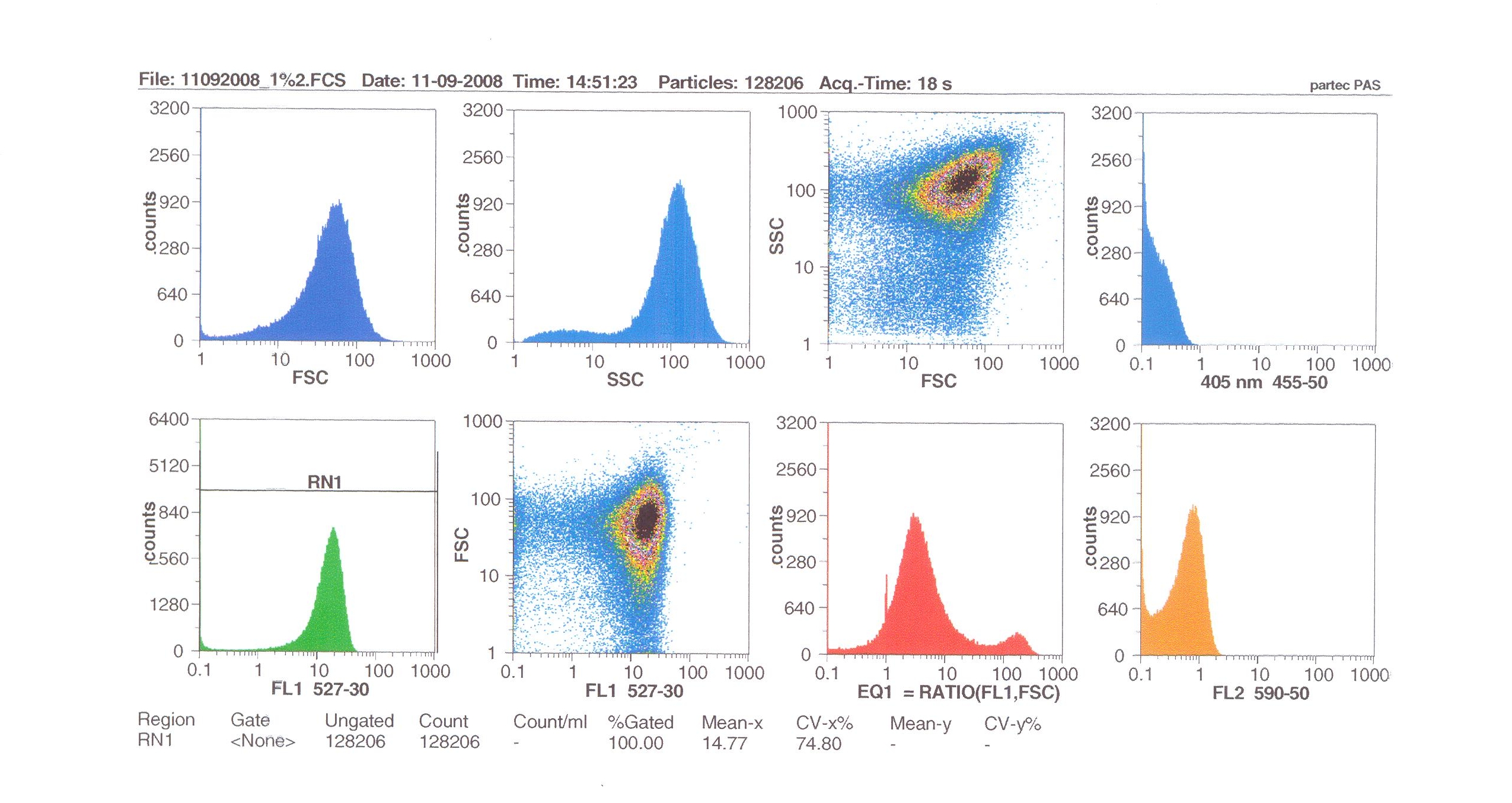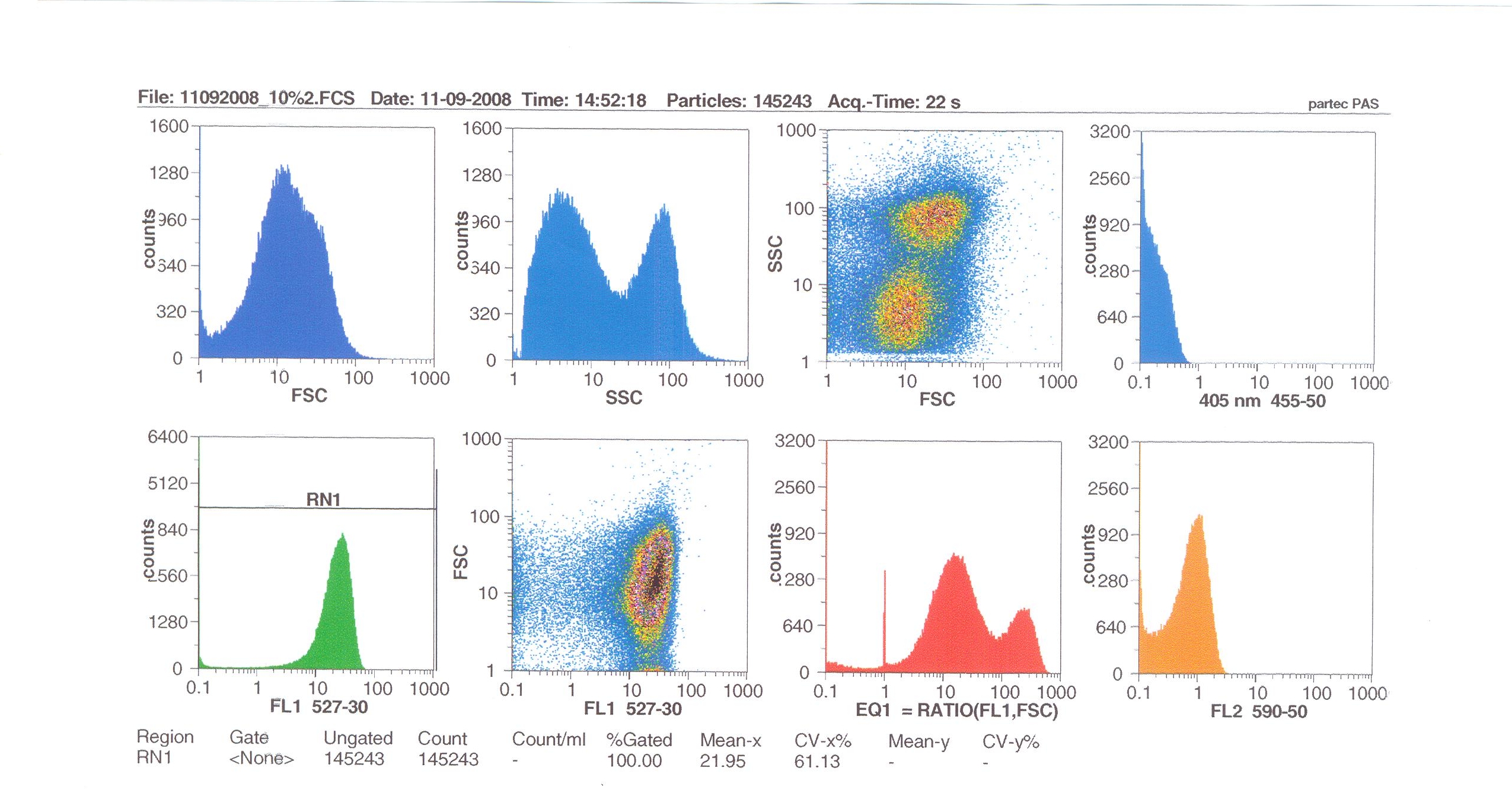Team:Newcastle University/Conclusions
From 2008.igem.org
Newcastle University
GOLD MEDAL WINNER 2008
| Home | Team | Original Aims | Software | Modelling | Proof of Concept Brick | Wet Lab | Conclusions |
|---|
Results
To analyse the results of the wet lab transformations of the inserts into B. subtilis, we used two methods: microscopy and flow cytometry.
Microscopy
Microscopy work from 08.09.08 showed a difference in the level of flourescence of the iGEMgfp fluorescent cells (higher in 10% subtilin-induced cells compared to 0% subtilin-induced cells). However, there was little difference in the number of cells that fluoresced between the two cultures.
There was no difference in the number of fluorecent cells or the level of fluorescence between the 10% subtilin-induced and the 0% subtilin-induced iGEMcherry cells.
Flow cytometry
Flow cytometry measures cell fluorescence and light scattering, which will allow us to quantify our results and present them in graphical form. A sample of our cells engineered Bacillus subtilis cells were injected into the machine, which hydro-dynamically focusses the fluid. Lasers of a particular wavelength are directed onto the stream of fluid, and each particle which passes through the light beam will cause the laser to scatter in a different way. Cells which absorb and then re-emit the light, result in fluorescence (a higher energy state).
The detectors in the machine measure the scattering of light and any fluoresence which occurs, and the data is displayed as histograms and dot plots.
0% induction by subtilin (i.e in the absence of subtilin): mean fluoresence = 7.70
1% induction by subtilin: mean fluoresence = 14.77
10% induction by subtilin: the mean fluoresence = 21.95
These results show that the higher the concentraion of subtilin, the more GFP is expressed.
At 10% induction, the subtilin began to cause some of the cells to lyse- this can be seen by the two distinct populations of cells- one being the cells which have lysed, and the other being the remainder of intact cells. Since subtilin is an antibiotic, this was a good indication that the subtilin we had collected that day was of good quality.
 "
"


